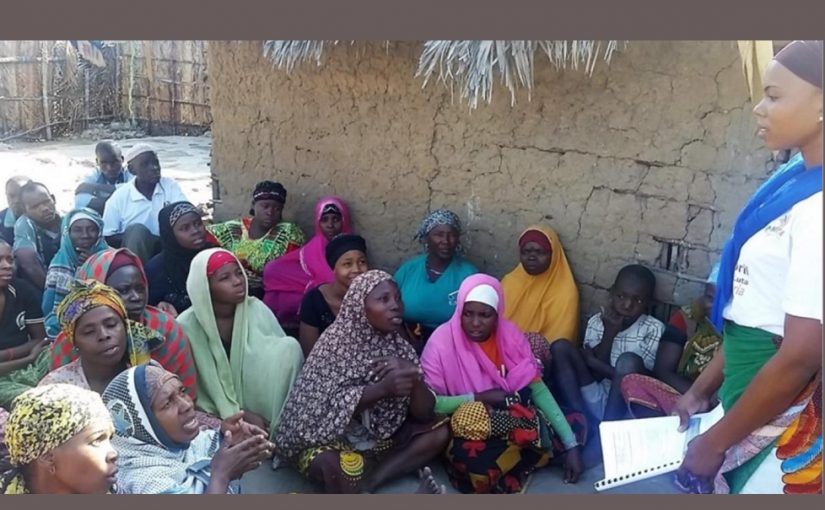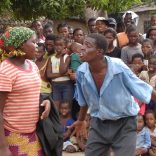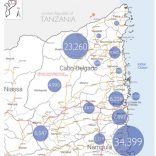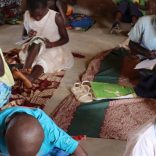Mozambique: Health workers call for replacement of government representatives
Mozambique: USAID launches new malaria prevention program in Manica, Nampula, Zambézia and Cabo Delgado

Mozambican women receive information on how to prevent and treat malaria. [Photo courtesy: US Embassy in Mozambique]
The U.S. Government, through the United States Agency for International Development (USAID), announces a five-year program that will reduce malaria prevalence in communities in Manica, Nampula, Zambézia and Cabo Delgado provinces. The program will increase the long-term use of malaria prevention and treatment practices in these communities, which experience the highest rates of malaria in the country. It will also strengthen the ability of Mozambican organizations based in these regions to lead the fight against malaria.
Through the Fighting Malaria with Social and Behaviour Change (FMSBC) program, USAID will partner with the Government of Mozambique, local NGOs, and community-based organizations to support their malaria social behaviour change (SBC) interventions. The program’s activities will promote the use of insecticide-treated nets, teach the care and maintenance of the nets, encourage parents to treat children with fever, and promote preventive treatment for malaria in pregnancy. In addition to promoting better practices, the program will build the capacity of local organizations.
USAID Mission Director Helen Pataki said, “This FMSBC award will not only reduce the burden of this deadly disease but sow the seeds of lasting change by building capacity locally. Every net delivered, every test conducted, every life saved is a testament to the U.S. Government commitment to build healthier, resilient, and malaria-free communities in Mozambique.”
Through the U.S. Government, President’s Malaria Initiative (PMI), USAID is investing more than $17 million in this malaria social behavior change program over the next five years. It will be implemented by Johns Hopkins University, on behalf of its Bloomberg School of Public Health’s Center for Communication Programs (JHU CCP).
Support for malaria programming is an essential component of the broader U.S. Government assistance in Mozambique. In close collaboration with the Government of the Republic of Mozambique, the U.S. Government provides more than $800 million in annual grant assistance for health, economic development, support to civil society, and humanitarian response.
The U.S. President’s Malaria Initiative (PMI) supports 24 partner countries in sub-Saharan Africa and three programs in the Greater Mekong Subregion in Southeast Asia to control and eliminate malaria. Led by the U.S. Agency for International Development (USAID) and implemented together with the U.S. Centers for Disease Control and Prevention (CDC), PMI delivers cost-effective, lifesaving malaria interventions alongside catalytic technical and operational assistance to equip and empower partner countries to end malaria. PMI provides vital financial and technical assistance that enables the Government of Mozambique to deploy lifesaving interventions proven to fight malaria. PMI supports Mozambique’s National Malaria Control Program’s strategic plan to reduce the national incidence of malaria and reduce malaria hospital mortalities. For more information about PMI’s work, visit www.pmi.gov.












Leave a Reply
Be the First to Comment!
You must be logged in to post a comment.
You must be logged in to post a comment.